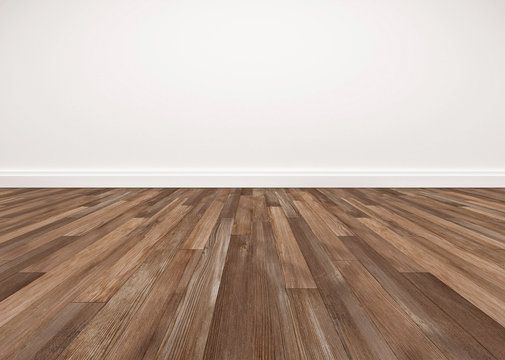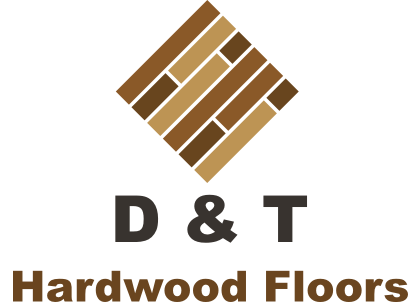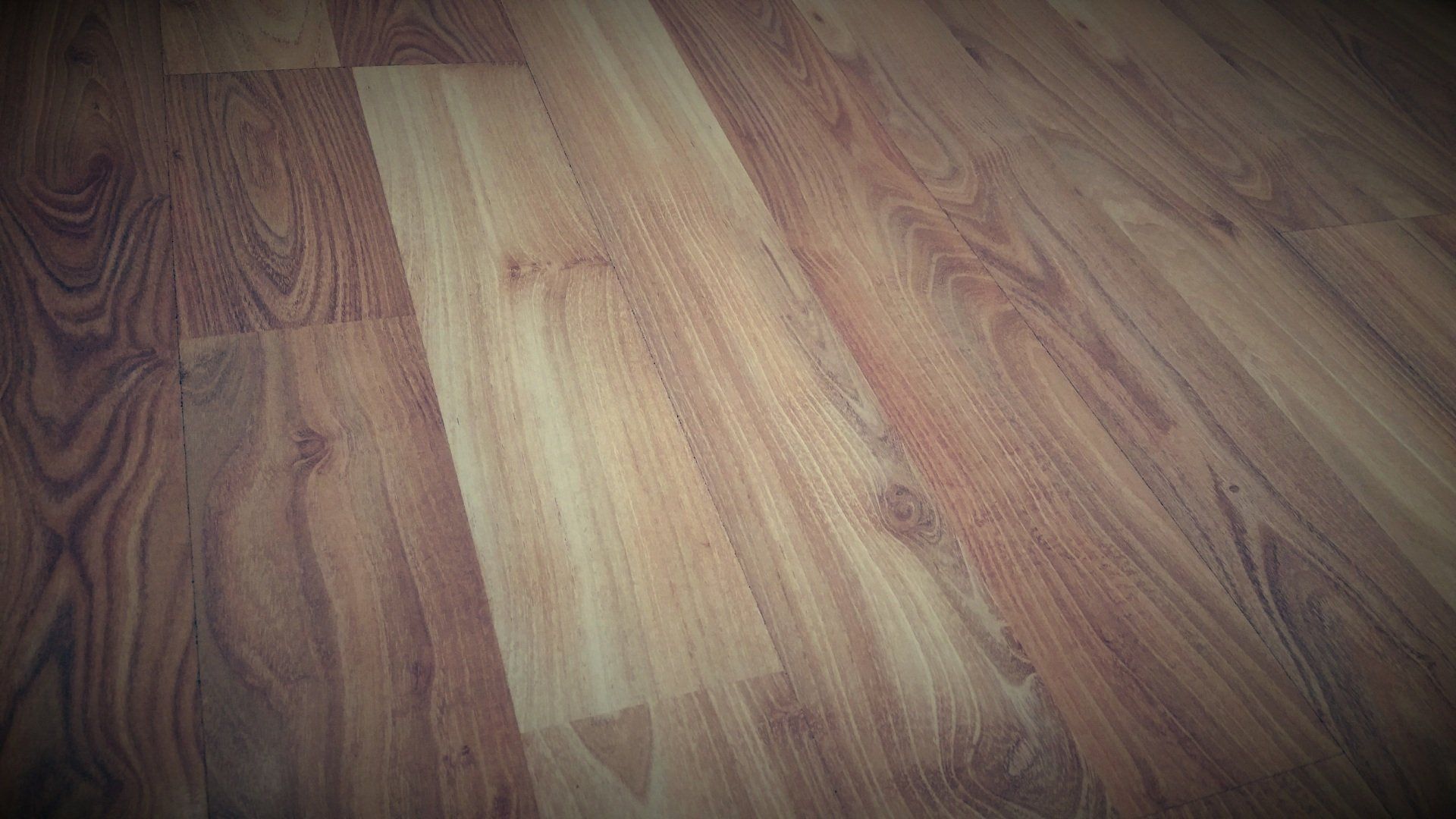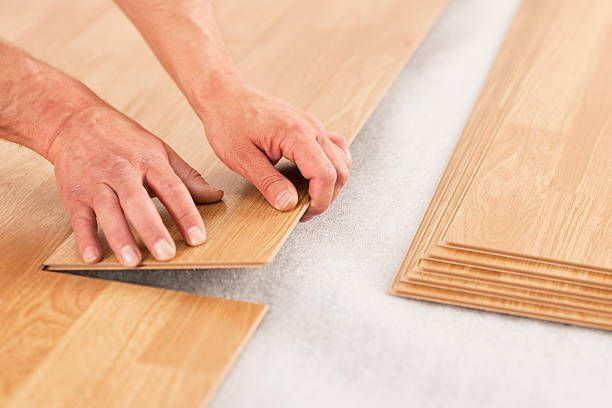Hardwood Floors in Rental Properties: Pros and Cons for Portland Landlords
Points to Ponder Before Renovating Decisions

As a landlord in Portland, Oregon, one of the decisions you'll need to make when renovating or updating rental properties is whether to install hardwood floors. Hardwood floors offer several advantages, including durability, aesthetics, and potential for increased rental value. However, there are also drawbacks to consider, such as maintenance costs and potential damage from tenants.
Pros of Hardwood Floors in Rental Properties
· Aesthetic Appeal: Hardwood floors add a touch of elegance and sophistication to rental properties, enhancing their overall appeal to prospective tenants. The natural beauty of wood flooring can complement a wide range of interior design styles, from traditional to contemporary, making it a versatile choice for rental units.
· Durability: Hardwood floors are known for their durability and longevity, especially when compared to carpeting or laminate flooring. With proper care and maintenance, hardwood floors can withstand heavy foot traffic and retain their appearance for many years, reducing the need for frequent replacement or repairs.
· Easy to Clean: Unlike carpeting, which can trap dirt, dust, and allergens, hardwood floors are easy to clean and maintain. Regular sweeping and occasional mopping are typically all that's needed to keep hardwood floors looking their best, making them a low-maintenance option for rental properties.
· Potential for Increased Rental Value: Properties with hardwood floors often command higher rental prices compared to those with carpeting or other types of flooring. Tenants are willing to pay a premium for the luxury and convenience of hardwood floors, providing an opportunity for landlords to maximize their rental income.
· Timeless Appeal: Hardwood floors have a timeless appeal that transcends trends and fads, ensuring that your rental property maintains its value and desirability over time. Unlike other flooring options that may become dated or fall out of fashion, hardwood floors remain a classic choice that appeals to a wide range of tenants.
Cons of Hardwood Floors in Rental Properties
· Initial Cost: The upfront cost of installing hardwood floors can be significantly higher than other flooring options, such as carpeting or laminate. While hardwood floors may offer long-term cost savings due to their durability, landlords must be prepared to make a substantial investment upfront.
· Maintenance Requirements: Hardwood floors require regular maintenance to preserve their appearance and longevity. This includes sweeping or vacuuming to remove dirt and debris, as well as periodic refinishing to address scratches, dents, and wear. Landlords must factor in the cost and time associated with ongoing maintenance when considering hardwood floors for rental properties.
· Susceptibility to Damage: While hardwood floors are durable, they are not immune to damage from scratches, spills, and other accidents. Tenants may inadvertently cause damage to hardwood floors through careless behavior or neglect, requiring landlords to repair or refinish the flooring between tenancies.
· Noise Transmission: Hardwood floors can transmit sound more effectively than carpeting, which may be a concern in multi-unit buildings or properties with shared walls. Tenants living below or adjacent to units with hardwood floors may experience increased noise levels, leading to potential complaints or disputes.
· Limited Insulation: Hardwood floors provide minimal insulation compared to carpeting, which can impact energy efficiency and comfort levels in rental properties. Tenants may find hardwood floors colder and less comfortable to walk on, especially during the colder months, leading to higher heating costs and potential dissatisfaction.
Are there any green or eco-friendly hardwood flooring options available for rental properties in Portland?
In Portland, a city known for its commitment to sustainability and environmental stewardship, the demand for green and eco-friendly building materials, including hardwood flooring, is on the rise. Fortunately, there are several options available for landlords seeking environmentally conscious hardwood flooring options for their rental properties.
One popular choice among eco-conscious landlords is reclaimed hardwood flooring. Reclaimed wood is salvaged from old buildings, barns, and other structures slated for demolition, then refurbished and repurposed for use in new construction or renovation projects. By giving new life to old wood, reclaimed hardwood flooring reduces the demand for virgin timber and minimizes the environmental impact associated with deforestation and logging. Additionally, reclaimed hardwood flooring adds character and charm to rental properties, with unique markings and patina that tell a story of its previous life.
Exploring Eco-Friendly Options
Another eco-friendly option for hardwood flooring in Portland rental properties is FSC-certified wood. The Forest Stewardship Council (FSC) is an independent organization that certifies wood products sourced from responsibly managed forests. FSC-certified hardwood flooring ensures that the wood is harvested in a sustainable manner, with minimal impact on forest ecosystems and local communities. Landlords can choose from a variety of FSC-certified hardwood species, including oak, maple, and cherry, to achieve the desired aesthetic while supporting environmentally sound forestry practices.
For landlords looking to minimize their environmental footprint even further, bamboo flooring is an excellent eco-friendly alternative to traditional hardwood. Bamboo is a rapidly renewable resource that grows to maturity in just a few years, making it an exceptionally sustainable choice for flooring material. Bamboo flooring is durable, versatile, and available in a range of colors and styles to suit any design aesthetic. Additionally, bamboo flooring is naturally resistant to moisture and pests, making it well-suited for rental properties in Portland's damp climate.
Hardwood floors offer several advantages for rental properties in Portland, including aesthetic appeal, durability, and potential for increased rental value. However, landlords must weigh these benefits against the drawbacks, such as initial cost, maintenance requirements, and susceptibility to damage. Ultimately, the decision to install hardwood floors in rental properties depends on factors such as budget, property type, tenant preferences, and long-term investment goals. Before making a decision, landlords should carefully consider the pros and cons of hardwood floors and assess whether they align with their overall property management strategy. By weighing the costs and benefits and making an informed decision, landlords can enhance the value and desirability of their rental properties while providing tenants with a comfortable and attractive living environment.
You might also like
Maine Hardwood Blog
SPEAK TO A TEAM MEMBER TODAY
All Rights Reserved | D & T Hardwood Floors
Website Managed by
Leads By Vinny




